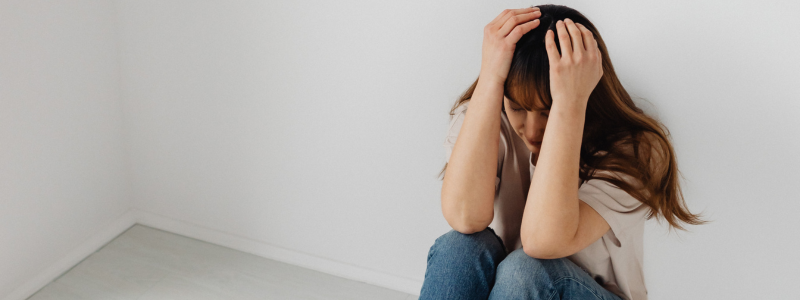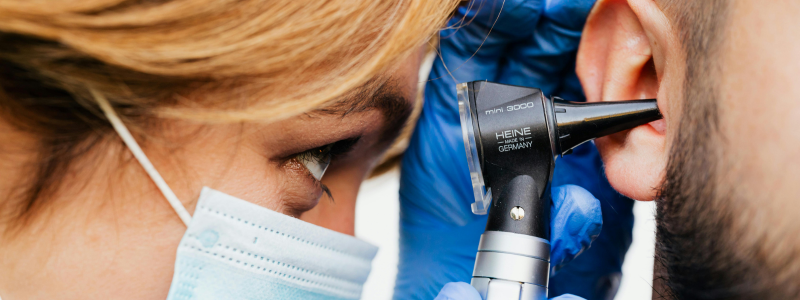
Head of Online Medical Content

Audiology Expert

I lip read without realising it
Do I have hearing loss?
Overview | Unconscious lip reading | Visual speech processing | Signs to look out for | Diagnosis and treatment | Summary
Last Hearing Aid UK Update: 24
Overview
This article talks about how "unconscious" lip reading could indicate undiagnosed hearing loss. As hearing declines, the brain naturally compensates by relying on visual cues, which can mask hearing problems for years.
Here, we identify warning signs, including a preference for face-to-face communication, difficulty in low-light settings, and avoiding the telephone.
It emphasises that while visual compensation can help support hearing, the cognitive effort leads to fatigue and social withdrawal. Plus, we will also talk about the importance of an early diagnosis and treatment.
We hope this article goes some way to reassure you that help is available and encourages early intervention to ultimately prevent social isolation.
Unconscious lip reading
Are you finding yourself watching people's mouths more closely during conversations? Or perhaps you've noticed you struggle more when someone turns away whilst speaking?
Unconscious lip reading is a common sign of undiagnosed hearing loss. This is mainly because hearing loss often develops gradually, making it difficult for people to recognise the early stages.
One of the most telling red flags that many overlook is their unconscious reliance on lip reading during conversations. This adaptive behaviour can mask hearing difficulties for years, ultimately delaying proper diagnosis and treatment.
Hearing loss rarely announces itself with bells and whistles; instead, it creeps in quietly, often starting with specific frequencies first.
Compensating for not being able to hear
When your hearing begins to decline, the brain naturally compensates by increasing the support of visual cues. This neuroplastic adaptation usually occurs without you knowing, as the visual cortex works harder to process facial movements and lip patterns to fill auditory gaps.
These adaptations can be so effective that you may function normally in many social and professional situations. Here are a few compensatory strategies you might recognise:
- Positioning yourself in the best light to maintain a clear sight of the speakers' faces
- Relying heavily on facial expressions and mouth movements
- Experiencing difficulty in dimly lit venues or when speakers turn away
- Preferring to speak face-to-face (either in person or on platforms such as Zoom) rather than over the telephone
What starts as a minor inconvenience can quickly spiral into something more significant. You might find yourself avoiding certain social situations or positioning yourself strategically to see people's faces more clearly.
Visual speech processing and hearing loss
Lip reading involves watching how people move their mouths and lips when they speak. Some sounds are easy to see, such as 'p', 'b', 'm', 'f', and 'v', because they're made at the front of the mouth. Other sounds are harder to spot because they're formed further back in the mouth.
Even people with normal hearing get about 30% of their understanding from watching faces whilst listening. When hearing starts to decline, the brain relies more on these visual clues to fill in the gaps.
Because unconscious lip reading works so well, it can hide hearing problems for months or even years. Many patients only realise they have hearing difficulties when they can't see the speaker's face, during phone calls, for example, or when someone turns away whilst talking.
Don't forget about the psychological effects either. It can feel limiting to always need to see someone's face to understand them, and not being able to see someone can make you more anxious in some situations because you might miss important information.
Signs to look out for
Other common signs that you might have hearing loss include:
1. Communication:
- Insisting on face-to-face positioning during conversations
- Asking people to repeat themselves when visual contact is broken
- Fatigue following prolonged social interaction
- Turning up the television or radio louder than others prefer
- Having particular difficulty hearing women's or children's voices
- Finding telephone conversations challenging
- Feeling like people are mumbling more than they used to
- Missing sounds like birds singing, the doorbell, or your phone ringing
2. Environments:
- Avoiding dimly lit restaurants or other venues
- Positioning yourself near light sources during conversations
- Demonstrating anxiety in group settings where multiple speakers are present
3. Compensating:
- Filling conversational gaps through guesswork
- Nodding agreement without full understanding
- Avoiding telephone communication when possible
The importance of an early assessment and diagnosis
Ignoring hearing loss can have significant consequences. The cognitive load required for the constant need for visual cues can lead to listening fatigue, social withdrawal, and reduced quality of life.
Untreated hearing loss has also been linked to accelerated cognitive decline and increased risk of dementia in older adults.
Related reading: Hearing loss and dementia risk
Treatments
Modern hearing aids can make it much easier to deal with visual compensation by bringing back sound input across all affected frequencies.
Digital hearing aids can be set up to work with certain types of hearing loss, which makes it easier to understand speech.
People who are good at lip-reading without thinking about it may be able to improve their communication skills even more with formal speech-reading training and the right amplification.
Summary
If you've seen yourself in this article, you might be paying more attention to people's mouths, having trouble with phone calls, or feeling worn out after social events. Please know that asking for help is a good thing, not a sign of weakness.
A lot of people have hearing loss that isn't diagnosed for years. Your brain's ability to adapt through lip reading shows how strong you are. But you don't have to work this hard to talk to someone.
A simple hearing test can help you understand and, most importantly, feel better. Modern hearing aids are small, work well, and can make it a lot easier for you to talk to people. This step doesn't mean you have to do anything; it just gives you the information you need to make smart choices about your hearing health.
The most important thing to remember is that you shouldn't suffer in silence. Getting help early can stop you from feeling alone and help you feel more confident in conversations. You shouldn't have to work this hard to talk to people!
Why Choose Us?
- FREE Hearing Tests
- Best Hearing Aids and Prices
- FREE Aftercare for Life
- FREE Home Visits
- 200+ Local Audiologists
- 60 Day Money Back Guarantee
Lip reading without knowing it? You might have hearing loss
A simple hearing test can provide the answers and relief you've been looking for.
Book an appointment with one of our qualified audiologists today. Modern hearing solutions are more discreet and effective than ever, and many people are surprised by the immediate difference they make.
You shouldn't have to work this hard to hear. Your conversations shouldn't be exhausting. Don't let another day pass feeling disconnected. Call us today and rediscover effortless communication.
Other hearing loss awareness articles you might like...
 Hearing aid stigma
Hearing aid stigma  How to tell if hearing loss is permanent or temporary
How to tell if hearing loss is permanent or temporary  Ways to keep your ears healthy
Ways to keep your ears healthy Our specialist service includes:
Do not spend hundreds of pounds without getting a second opinion from us.
Please call us on 0800 567 7621
 Not only are the prices great, but the service is fantastic! Many thanks to your team.
Not only are the prices great, but the service is fantastic! Many thanks to your team.What's included in our hearing aid prices?
What the NHS video about hearing loss below
FAQs
In general, any audiologist will always recommend to you the hearing aid model that best suits your needs. Here is a useful checklist to make sure that is the case.
- Audiologist's level of knowledge: The audiologist you have seen will hopefully have a wide knowledge of all available hearing aids; however, some will only be familiar with a small number of brands and, therefore, may not really be in a position to know which model is the best for you. It is OK to challenge their recommendation and ask them to justify why this particular brand is the one for you.
- Do research: Read about the hearing aid that was recommended. Does it seem like it will suit your lifestyle? Does it have more or fewer features than you need?
- Be aware of sales targets: Many high street retailers have specific tie-ins to a particular manufacturer/brand. The hearing aid they have suggested may still be the correct one for you, but do your research so that you know why they might have recommended it.
If you have significant hearing loss in both ears, you should be wearing two hearing aids. Here are the audiological reasons why:
Localisation: The brain decodes information from both ears and compares and contrasts them. By analysing the minuscule time delays as well as the difference in the loudness of each sound reaching the ears, the person is able to accurately locate a sound source.
Simply put, if you have better hearing on one side than the other, you can't accurately tell what direction sounds are coming from.
Less amplification is required: A phenomenon known as “binaural summation” means that the hearing aids can be set at a lower and more natural volume setting than if you wore only one hearing aid.
Head shadow effect: High frequencies, the part of your hearing that gives clarity and meaning to speech sounds, cannot bend around your head. Only low frequencies can. Therefore, if someone is talking on your unaided side, you are likely to hear that they are speaking, but be unable to tell what they have said.
Noise reduction: The brain has its own built-in noise reduction, which is only really effective when it is receiving information from both ears. If only one ear is aided, even with the best hearing aid in the world, it will be difficult for you to hear in background noise as your brain is trying to retain all of the sounds (including background noise) rather than filtering them out.
Sound quality: We are designed to hear in stereo. Only hearing from one side sounds a lot less natural to us.
Fancy some further reading on this topic? You can read about why two hearing aids are better than one in our article, hearing aids for Both Ears, here
For most people, the main benefit of a rechargeable hearing aid is simple convenience. We are used to plugging in our phones and other devices overnight for them to charge up. Here are some other pros and cons:
For anybody with poor dexterity or issues with their fingers, having a rechargeable aid makes a huge difference, as normal hearing aid batteries are quite small and some people find them fiddly to change.
One downside is that if you forget to charge your hearing aid, then it is a problem that can't be instantly fixed. For most, a 30-minute charge will get you at least two or three hours of hearing, but if you are the type of person who is likely to forget to plug them in regularly, then you're probably better off with standard batteries.
Rechargeable aids are also a little bit bigger and are only available in Behind-the-Ear models.
Finally, just like with a mobile phone, the amount of charge you get on day one is not going to be the same as you get a few years down the line. Be sure to ask what the policy is with the manufacturer's warranty when it comes to replacing the battery.
For most people, the answer is yes. But it's never that simple.
The majority of hearing problems affect the high frequencies a lot more than the low ones. Therefore, open fitting hearing aids sound a lot more natural and ones that block your ears up can make your own voice sound like you are talking with your head in a bucket. Therefore, in-ear aids tend to be less natural.
However, the true answer is we can't tell until we have had a look in your ears to assess the size of your ear canal, and until we have tested your hearing to see which frequencies are being affected.
People with wider ear canals tend to have more flexibility, also there are open fitting modular CIC hearing aids now that do not block your ears.
There is also the age-old rule to consider, that a hearing aid will not help you if it's sat in the drawer gathering dust. If the only hearing aid you would be happy wearing is one that people can't see, then that's what you should get.
Most people can adapt to any type of hearing aid, as long as they know what to expect. Have an honest conversation with your audiologist as to what your needs are.
Generally speaking, six or more. Unless it's none at all. The number of channels a hearing aid has is often a simplistic way an audiologist will use to explain why one hearing aid is better than another, but channels are complex, and it is really not that straightforward. Here are some reasons why:
Hearing aids amplify sounds of different frequencies by different amounts. Most people have lost more high frequencies than low, and therefore need more amplification in the high frequencies. The range of sounds you hear is split into frequency bands or channels, and the hearing aids are set to provide the right amount of hearing at each frequency level.
Less than six channels, and this cannot be done with much accuracy, so six is the magic number. However, a six-channel aid is typically very basic with few other features and is suitable only for hearing a single speaker in a quiet room. The number of channels is not what you should be looking at; it's more the rest of the technology that comes with them.
As a final note, different manufacturers have different approaches. One method is not necessarily better than any other. For example, some manufacturers have as many as 64 channels in their top aids. Most tend to have between 17 and 20. One manufacturer has no channels at all.
Manufacturer's warranties typically last between 2-5 years, depending on the brand and model, and cover defects in materials and workmanship. This includes repairs for component failures, electronic malfunctions, and manufacturing defects, but excludes damage from misuse, accidents, or normal wear. Most manufacturers also include loss and damage insurance for the first year.
We handle all warranty claims on your behalf, liaising with manufacturers and ensuring you get replacement devices quickly when needed. This comprehensive warranty coverage, combined with our lifetime aftercare, gives you complete peace of mind.
Our hearing tests are completely free, whether at our clinics or in your home. Unlike other providers who charge £30-£100 for home visits, we believe hearing healthcare should be accessible without financial barriers. Our comprehensive assessments include examination by a registered audiologist, audiogram results, and personalised recommendations.
All testing, future adjustments, and ongoing support are included at no extra cost. While NHS tests are also free, typical 6-week waiting periods often lead people to seek immediate private testing. We provide prompt, professional assessments that fit your schedule and budget.
Yes, we offer completely free home visits throughout the UK, and this service is included in our prices with no additional charges. Home visits are particularly valuable for people with mobility issues, busy schedules, or those who simply prefer the comfort and convenience of their own environment.
Our audiologists can conduct full hearing tests, fit hearing aids, and provide ongoing support in your home. This service sets us apart from many providers who either don't offer home visits or charge extra for them.
We can offer prices up to 40% lower than high street retailers because of our business model. As a network of 200+ independent audiologists, we don't have the massive overheads of large retail chains - no expensive high street premises, no sales targets pushing audiologists to sell the most expensive options, and no costly marketing campaigns.
However, we maintain the same buying power as the big chains because we purchase on behalf of our entire nationwide network. This means you get access to the same premium hearing aids with professional service, but at genuinely competitive prices.
We offer a comprehensive 60-day money-back guarantee, which gives you twice the industry standard time to properly assess whether your hearing aids are right for you. This extended period recognises that adjusting to hearing aids takes time, and your brain needs several weeks to adapt to the amplified sounds.
Unlike many providers who offer just 30 days, we believe 60 days gives you the confidence to test your hearing aids in all the situations that matter to you - from quiet conversations at home to busy restaurants and outdoor activities.
Other pages you might find useful
Ask the Experts
6 Morton Lane
Walkwood
Redditch
Worcestershire
B97 5QA
Latest Launch
When we refer to a product as 'Latest Launch', we mean it is the latest to be released on the market.
New
When we refer to a product as 'New', we mean that the product is the newest hearing aid model on the market.
When we refer to a product as 'Superseded', we mean that there is a newer range available which replaces and improves on this product.
Older Model
When we refer to a product as an 'Older Model', we mean that it is has been superseded by at least two more recent hearing aid ranges.
